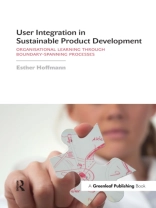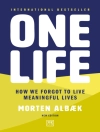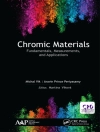Changes in production and consumption patterns are a crucial element in advancing the sustainability agenda. Many companies are now contributing to such efforts through a focus on sustainable innovation when developing new products and services. However, problematically, many such products fail as consumers reject them in the marketplace.User integration in product development is a well-suited approach to increase the usability and the marketability of new products. This book asks the following question: under what conditions can companies trigger sustainability-oriented organizational learning processes by integrating consumers in product development? The author analyses this question by studying a new approach called INNOCOPE (Innovating through consumer-integrated product development). The analysis is based on a process model of organizational learning, distinguishing different learning phases and related boundary-spanning activities. The case study shows that boundary spanning and communication with external actors may directly affect almost all phases of the organizational learning process. Depending on the organizational learning phase, specific boundary-spanning activities are identified that can be characterized as outside-in, inside-in or inside-out directed processes. Moreover, the book describes supportive conditions for user integration with regard to the company, the product, the users involved and the communication process, and provides managerial recommendations.User Integration in Sustainable Product Development sheds new light on the interaction between companies and users in innovation processes and how they relate to sustainable product development. Its focus on organizational learning at and across the boundaries of companies is original, stimulating, improves our understanding of user-producer interactions and distinguishes the book from other publications on the market.The book provides a hugely comprehensive overview of user integration in innovation processes: its advantages, problems and weaknesses, and the methods in which it is currently applied. This, along with a systematic analysis of organisational learning provides the reader with a complete understanding of what has to be considered when studying user-producer interactions from a company perspective and provides the basis for further improvements and company strategies to advance the take-up of sustainable products.The book will be essential reading for academics and practitioners involved with organizational learning, innovation studies, sustainable design and product development, and marketing.
Esther Hoffmann
User Integration in Sustainable Product Development [PDF ebook]
Organisational Learning through Boundary-Spanning Processes
User Integration in Sustainable Product Development [PDF ebook]
Organisational Learning through Boundary-Spanning Processes
Beli ebook ini dan dapatkan 1 lagi PERCUMA!
Bahasa Inggeris ● Format PDF ● Halaman-halaman 334 ● ISBN 9781351277914 ● Penerbit Taylor and Francis ● Diterbitkan 2017 ● Muat turun 3 kali ● Mata wang EUR ● ID 5318863 ● Salin perlindungan Adobe DRM
Memerlukan pembaca ebook yang mampu DRM












